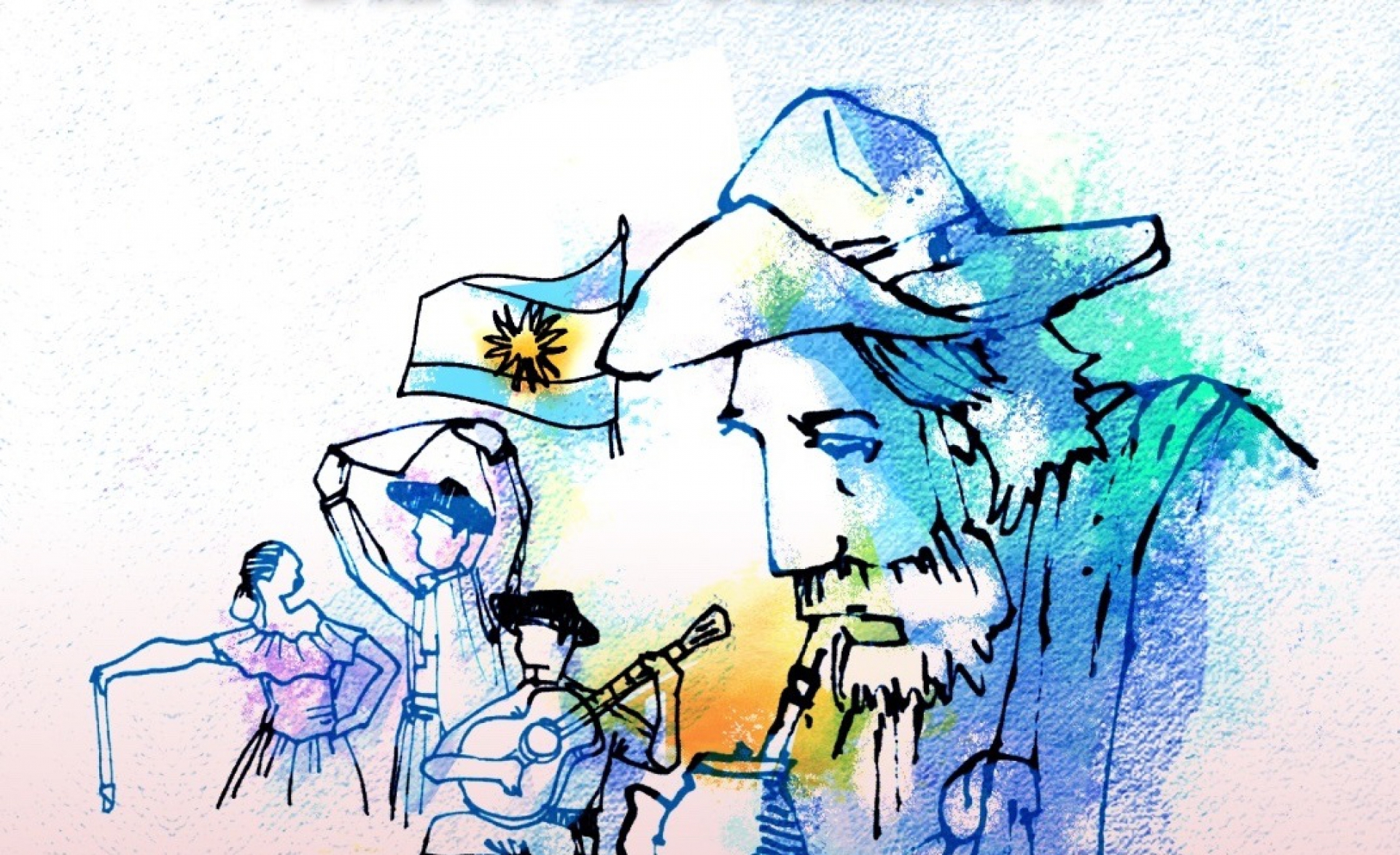Today, our country celebrates Tradition Day in commemoration of the birth, in 1834, of José Hernández, Argentine poet, journalist, and writer, recognized as the author of Martín Fierro, a masterpiece of national literature that not only captures the customs and values of the gauchos, but also symbolizes the spirit of struggle and resistance in the face of adversity.
Hernández's poem masterfully portrays the life of the gaucho Martín Fierro, a farm worker who, after being forced to enlist in the army and suffer injustices, becomes a gaucho matrero, a figure who embodies the resistance, dignity, and free spirit of the man of the pampas.
Published in two parts, El gaucho Martín Fierro (1872) and La vuelta de Martín Fierro (1879), this classic of Argentine literature has been translated into more than 70 languages and remains a living testimony to the customs, values, and social struggles of the 19th century. More than 150 years after its publication and 191 years after the birth of its author, Hernández's work continues to be a fundamental pillar of culture.
The celebration of Tradition Day has its roots in 1939, when the Congress of the Province of Buenos Aires passed Law No. 4756, promoted by Edgardo J. Míguenz and Atilio Roncoroni, based on an initiative by the Agrupación Bases, inspired by the ideas of journalist and poet Francisco Timpone. Decades later, in 1975, the date was enshrined at the national level by National Law No. 21,154, which officially established November 10 as a day of tribute and reflection on Argentine traditions.
In the Casa Rosada, the figure of José Hernández also has his permanent tribute. On the first floor is the Martín Fierro Room, dedicated to the famous character from the gaucho poem. Currently, this space functions as an office and preserves objects related to the writer.
Tradition Day is much more than a commemoration: it is an invitation to relive history, honor our roots, and keep Argentine customs alive.

